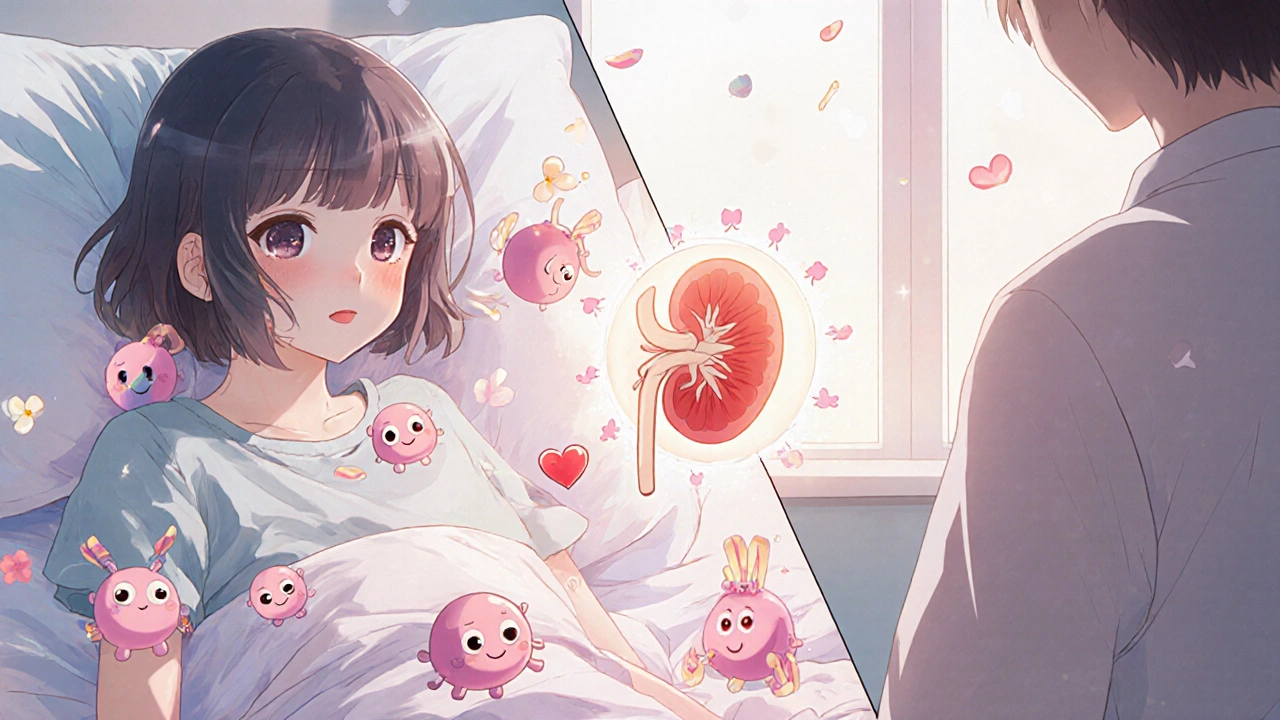Organ Rejection: What It Is, How It Happens, and How to Manage It
When your body receives a new organ—like a kidney, liver, or heart—it doesn’t always see it as a gift. Instead, your immune system treats it like an invader. This is called organ rejection, the immune system’s attack on a transplanted organ because it recognizes it as foreign. Also known as transplant rejection, it’s one of the biggest risks after any transplant surgery. Even with modern medicine, your body’s natural defense system is designed to fight off anything it doesn’t recognize as "self." That’s why transplant patients need to take special drugs for the rest of their lives.
These drugs are called immunosuppressants, medications that lower the immune system’s activity to prevent it from attacking the new organ. They don’t cure rejection—they just keep it under control. Common ones include tacrolimus, cyclosporine, and mycophenolate. But they come with trade-offs: weaker immunity means you’re more likely to catch infections, and long-term use can raise your risk of other health problems like high blood pressure or kidney damage. That’s why doctors carefully balance the dose—enough to protect the organ, but not so much that you become vulnerable to illness.
Rejection doesn’t always show up with obvious symptoms. Sometimes, it’s silent. That’s why regular blood tests and follow-ups are non-negotiable. But if you notice sudden swelling, fever, pain near the transplant site, or unusual fatigue, don’t wait. Early detection means easier treatment. In many cases, a short course of stronger anti-rejection meds can reverse the problem before it causes lasting damage.
Not everyone experiences rejection the same way. Acute rejection usually happens in the first few months after surgery. Chronic rejection creeps in over years, slowly damaging the organ without clear warning signs. And then there’s hyperacute rejection—rare, but dangerous. It happens within minutes if the blood types don’t match perfectly. That’s why matching donors and recipients is so detailed: tissue typing, antibody screening, cross-matching. It’s not just about blood—it’s about your body’s entire immune fingerprint.
What you’ll find in the posts below are real, practical guides on the medications and strategies that help people live with transplants. You’ll see comparisons of anti-rejection drugs, how to spot early signs of trouble, and how to manage side effects without sacrificing quality of life. These aren’t theory pages—they’re tools made for people who need to stay healthy after a transplant. Whether you’re a patient, a caregiver, or just trying to understand what happens after surgery, this collection gives you the facts you need to ask the right questions and make smarter choices.

How Organ Rejection Connects to Autoimmune Diseases - Essential Insights
Explore how organ rejection and autoimmune diseases share immune pathways, risk factors, and treatment challenges, and learn practical steps for patients and clinicians.
